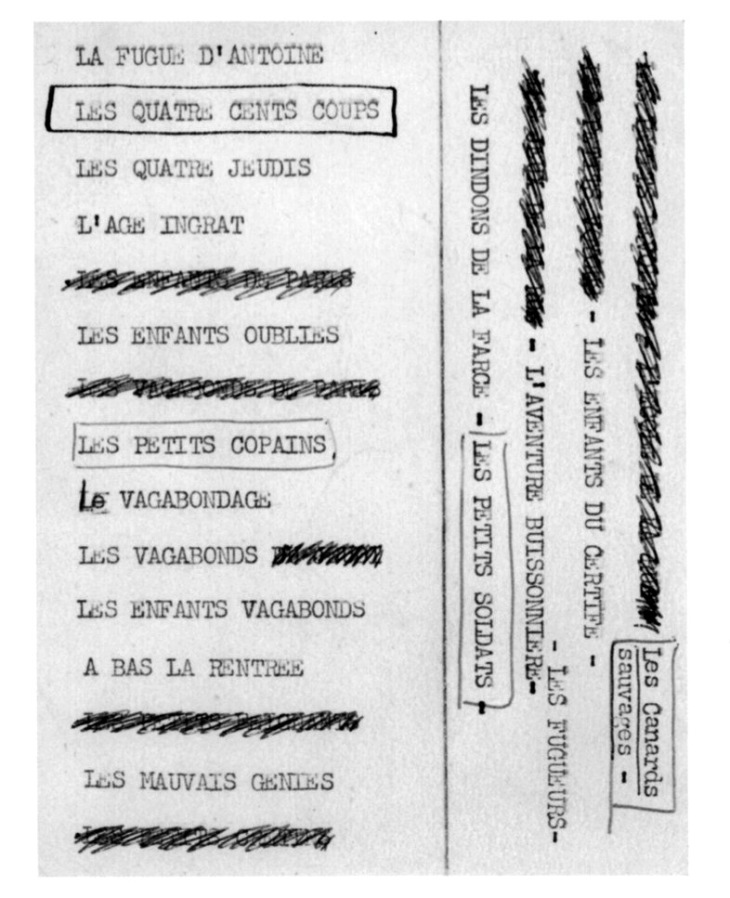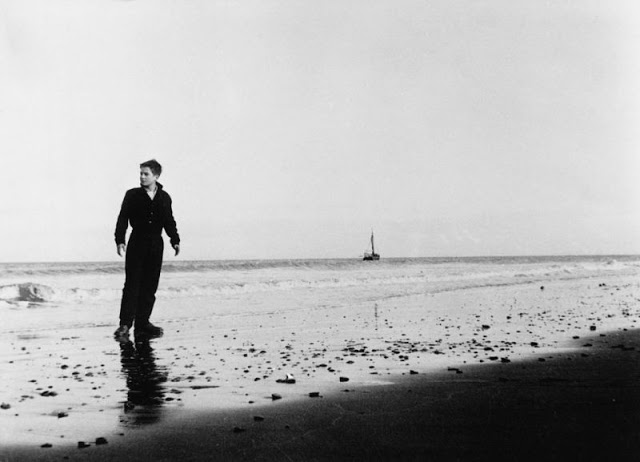 François Truffaut (right) and Jean-Pierre Léaud, on the set of his film Baisers Volés, Luxembourg Gardens, Paris (France), February 1968
François Truffaut (right) and Jean-Pierre Léaud, on the set of his film Baisers Volés, Luxembourg Gardens, Paris (France), February 1968
Sucede que me canso de ser hombre.
Sucede que entro en las sastrerías y en los cines
marchito, impenetrable, como un cisne de fieltro
navegando en un agua de origen y ceniza.
El olor de las peluquerías me hace llorar a gritos.
Sólo quiero un descanso de piedras o de lana,
sólo quiero no ver establecimientos ni jardines,
ni mercaderías, ni anteojos, ni ascensores.
Sucede que me canso de mis pies y mis uñas
y mi pelo y mi sombra.
Sucede que me canso de ser hombre.
Sin embargo sería delicioso
asustar a un notario con un lirio cortado
o dar muerte a una monja con un golpe de oreja.
Sería bello
ir por las calles con un cuchillo verde
y dando gritos hasta morir de frío.
No quiero seguir siendo raíz en las tinieblas,
vacilante, extendido, tiritando de sueño,
hacia abajo, en las tripas moradas de la tierra,
absorbiendo y pensando, comiendo cada día.
No quiero para mí tantas desgracias.
no quiero continuar de raíz y de tumba,
de subterráneo solo, de bodega con muertos,
aterido, muriéndome de pena.
Por eso el día lunes arde como el petróleo
cuando me ve llegar con mi cara de cárcel,
y aúlla en su transcurso como una rueda herida,
y da pasos de sangre caliente hacia la noche.
Y me empuja a ciertos rincones, a ciertas casas húmedas,
a hospitales donde los huesos salen por la ventana,
a ciertas zapaterías con olor a vinagre,
a calles espantosas como grietas.
Hay pájaros de color de azufre y horribles intestinos
colgando de las puertas de las casas que odio,
hay dentaduras olvidadas en una cafetera,
hay espejos
que debieran haber llorado de vergüenza y espanto,
hay paraguas en todas partes, y venenos, y ombligos.
Yo paseo con calma, con ojos, con zapatos,
con furia, con olvido,
paso, cruzo oficinas y tiendas de ortopedia,
y patios donde hay ropas colgadas de un alambre:
calzoncillos, toallas y camisas que lloran
lentas lágrimas sucias.
Pablo Neruda
1935
_______________________________________
It so happens I am sick of being a man.
And it happens that I walk into tailorshops and movie houses
dried up, waterproof, like a swan made of felt
steering my way in a water of wombs and ashes.
The smell of barbershops makes me break into hoarse sobs.
The only thing I want is to lie still like stones or wool.
The only thing I want is to see no more stores,no gardens,
no more goods, no spectacles, no elevators.
It so happens that I am sick of my feet
and my nails and my hair and my shadow.
It so happens I am sick of being a man.
Still it would be marvelous
to terrify a law clerk with a cut lily,
or kill a nun with a blow on the ear.
It would be great to go through the streets
with a green knife letting out yells
until I died of the cold.
I don’t want to go on being a root in the dark,
insecure, stretched out,
shivering with sleep,
going on down, into the moist guts of the earth,
taking in and thinking,
eating every day. I don’t want so much misery.
I don’t want to go on as a root and a tomb,
alone under the ground, a warehouse with corpses,
half frozen, dying of grief.
That’s why Monday, when it sees me coming with my convict face,
blazes up like gasoline,
and it howls on its way like a wounded wheel,
and leaves tracks full of warm blood
leading toward the night.
And it pushes me into certain corners,
into some moist houses,
into hospitals where the bones fly out the window,
into shoeshops that smell like vinegar,
and certain streets hideous as cracks in the skin.
There are sulphur-colored birds,
and hideous intestines hanging over the doors of houses that I hate,
and there are false teeth forgotten in a coffeepot,
there are mirrors that ought to have wept from shame and terror,
there are umbrellas everywhere, and venoms,
and umbilical cords.
I stroll along serenely, with my eyes, my shoes,
my rage, forgetting everything,
I walk by, going through office buildings and orthopedic shops,
and courtyards with washing hanging from the line: underwear,
towels and shirts from which slow dirty tears are falling.
English Translation by Robert Bly











































